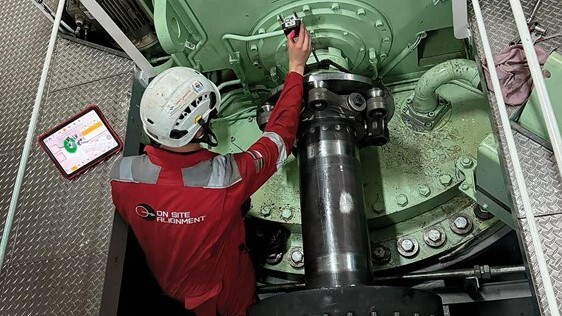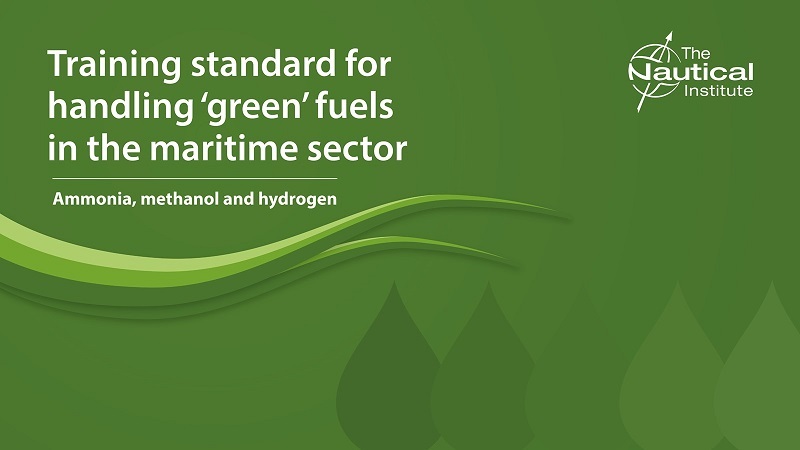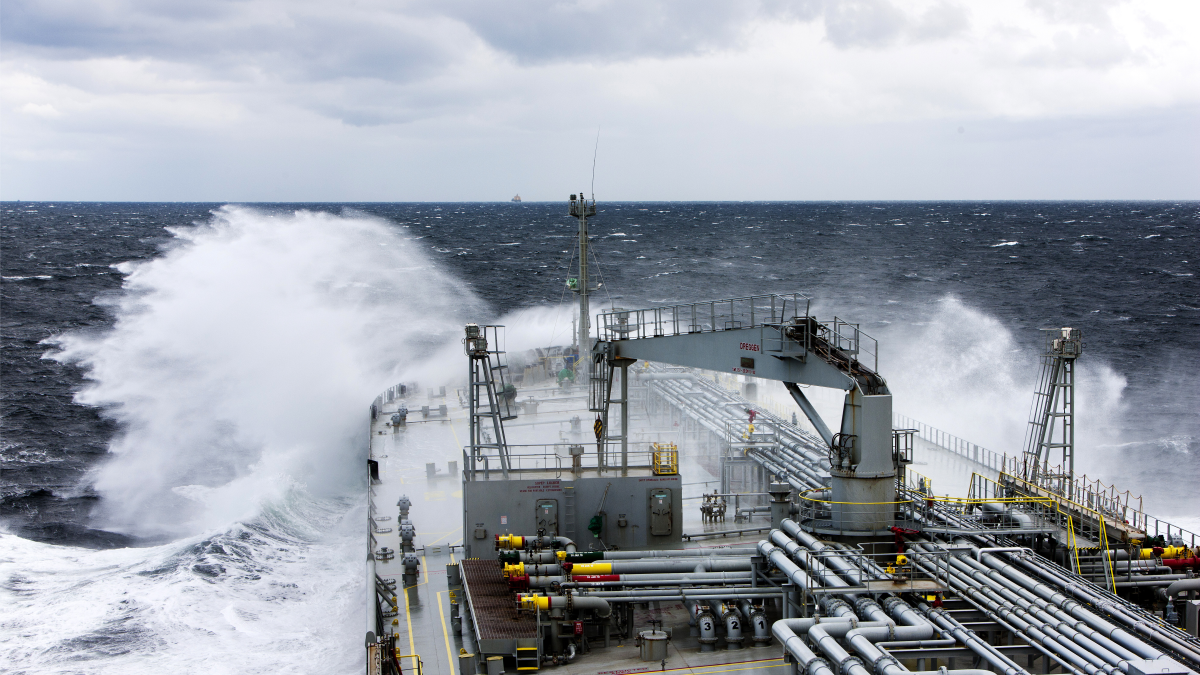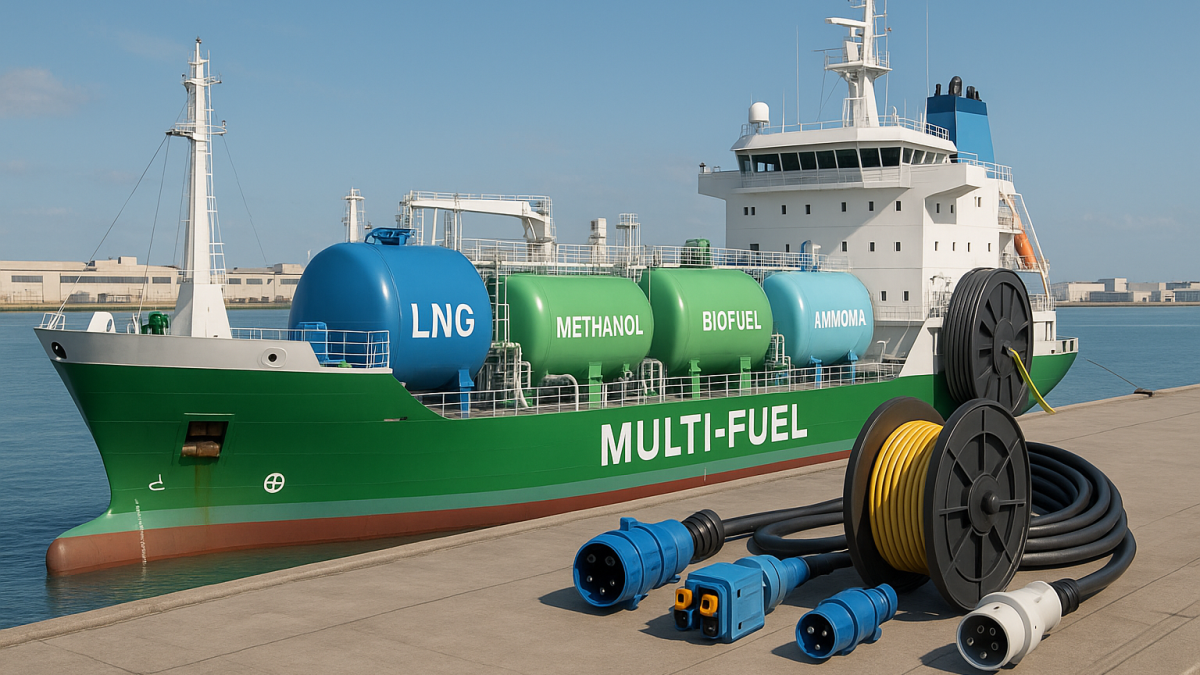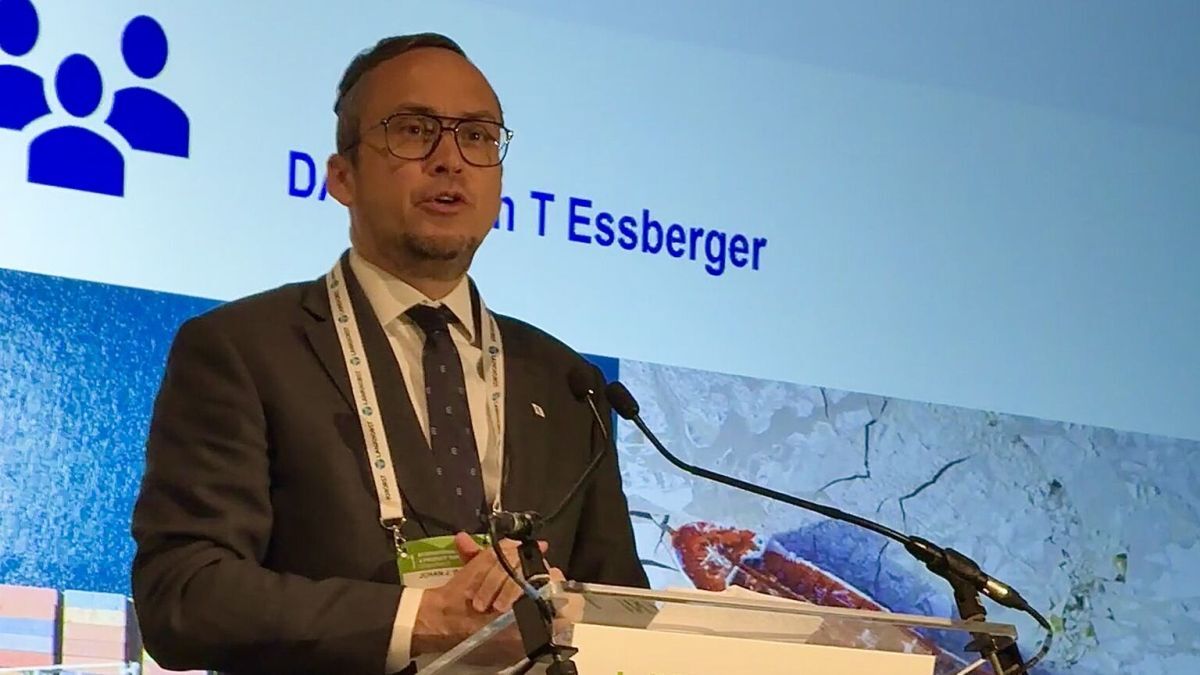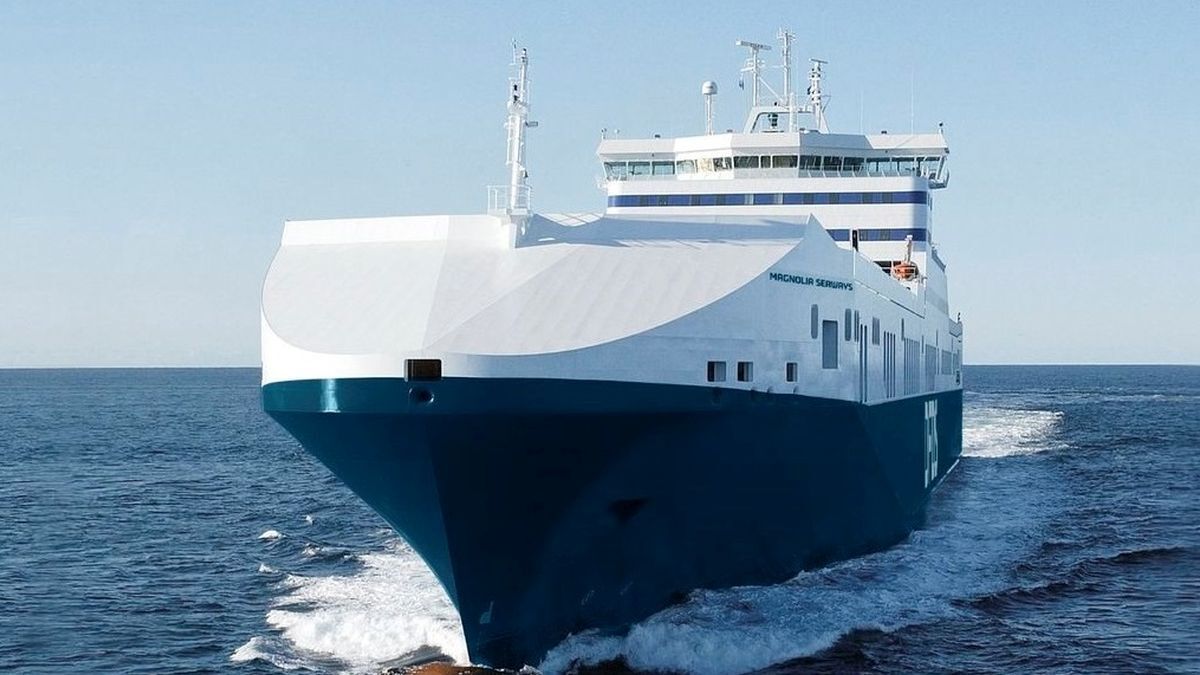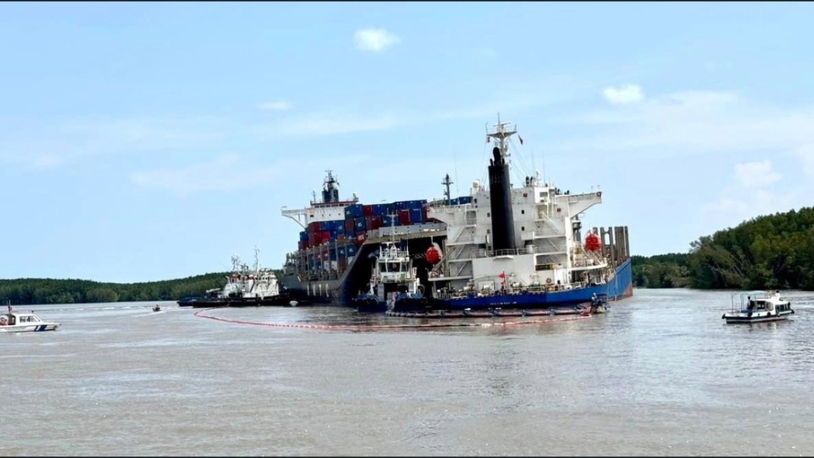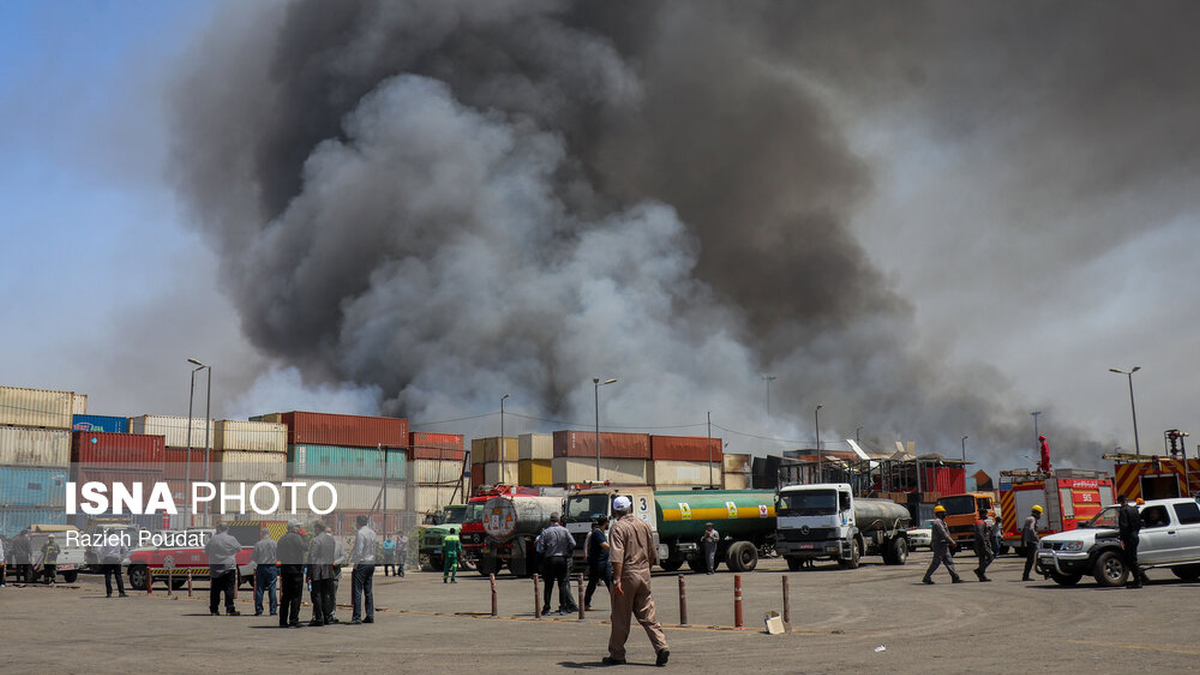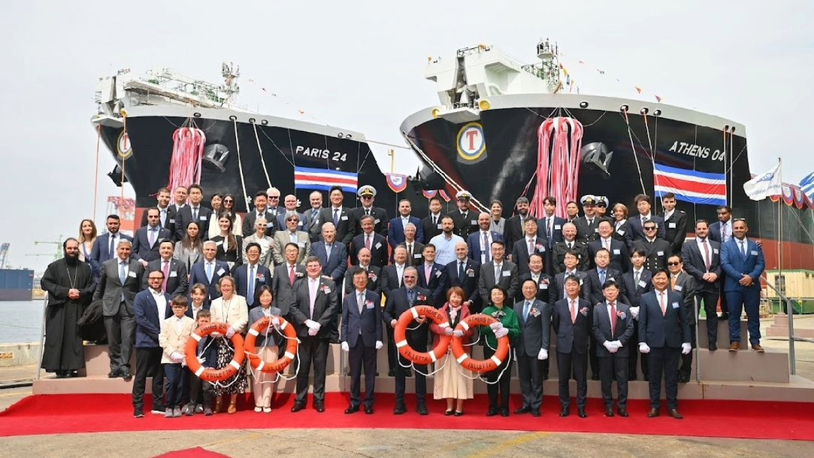Business Sectors
Events
Contents
The Nautical Institute’s training standard for handling ‘green’ fuels (ammonia, methanol and hydrogen) in the maritime sector
In light of a lack of guidance for the maritime education and training sector, and in response to the fast-changing needs of the industry, The Nautical Institute has constructed an independent training standard that the MET could use as guidance in constructing their own training
In August 2022, The Nautical Institute published its Green Curriculum paper. This introduced the concept of a global harmonised training standard for seafarers relating to the introduction of alternative new fuels (aka novel fuels). As an interim measure until official STCW requirements are established, we are introducing a training standard to help the maritime education and training (MET) sector develop their own courses.
A number of published studies speculate that there will be a requirement to train approximately 800,000 seafarers in the use of novel fuels by the mid 2030s. Although Class rules concerning novel fuel ship construction are being drafted, it is clear there will not be enough time for the IMO to endorse a new STCW training standard before the alternative-fuelled vessels currently under construction come into service. Further, because these vessels do not yet exist, there was and is no significant operational data to draw upon. Therefore, the imminent introduction of such fuels will introduce an elevated environmental and operational risk.
In light of a lack of guidance for the MET sector, and in response to the fast-changing needs of the industry, The Nautical Institute has constructed an independent training standard that the MET could use as guidance in constructing their own training courses.
The Nautical Institute has independently compiled this training standard over the last two years. During this time, we became aware of and involved in other initiatives to produce STCW training standards and to suggest amendments to existing SOLAS guidelines.
The main STCW revision initiative is from the UN Global Compact Maritime Just Transition Task Force (UNGC MJTTF). This initiative is tasked with constructing an STCW standard along with supporting training materials. The Nautical Institute is proud to be part of this initiative as well as another major initiative from the Maritime Technologies Forum (MTF). The MTF initiative has produced a report with recommendations to update the existing ISM Code in way of company safety management systems (SMS), to better relate to the novel fuels. In particular, it highlights the responsibilities of the DPA and shipping company/operator executives.
Ultimately, the STCW revision and most likely the ISM Code revision will be accepted by the IMO. However, we know from empirical experience that this can take some time. It is unlikely that the STCW and SOLAS amendments will come into force before at least 2027, and the process may potentially run as late as 2032. This means that there could be a substantial wait for official IMO guidance against which to construct training courses. The Nautical Institute has produced its standard of recommended guidelines in order to bridge this gap and offer guidance where it is needed. Our standard will be available online free of charge from our green curriculum portal. It is not the intention of The Nautical Institute to monetize this standard. We choose to operate in the best interests of seafarers in a desire to mitigate the environmental and operational risks that will surely accompany these novel fuels.
What does our standard give? It may be easier to tell you what it doesn’t give. It does not give precise content as we feel we cannot be all things to all people. Instead, we give content advice that will allow training centres to develop their own course material. This in turn will allow the training centres to update and modify their training content in response to fast-developing technologies.
We have chosen to focus on the three main novel fuels that are currently gaining traction: ammonia, methanol and hydrogen. There are of course several other fuel options such as LNG, LPG, electric cells, and nuclear. But we must be mindful of the vessels that are currently being built, the fuel types these vessels will use, and the relevance and cost effectiveness of constructing a training course specifically for specific fuels. LNG is a well-documented fuel with existing training courses.
For those involved in tanker operations, the suggested content will not be hugely surprising. However, as most vessels are not tankers, most seafarers have not been exposed to the bulk transportation of these cargoes and are likely to be unfamiliar with many of the standard tanker protocols. Further, the handling of these fuels will probably lie with the engineers. Even on tankers, engineers are remote from the specifics of handling these fuels in bulk.
All these fuels possess an elevated environmental and operational risk. The Nautical Institute has made this a constant theme because there is no operational data currently available – and yet, there are many orders placed for such vessels and they will be coming online in the immediate future. That is, in the next one to two years. The Nautical Institute believes that seafarers should not be collateral damage in the race to de-carbonise shipping. As such, we feel duty bound to represent seafarers by producing these recommendations and guidelines.
For more information, please monitor the Nautical Institute website here.
Related to this Story
Events
Maritime Environmental Protection Webinar Week
Cyber & Vessel Security Webinar Week
The illusion of safety: what we're getting wrong about crews, tech, and fatigue
Responsible Ship Recycling Forum 2025
© 2024 Riviera Maritime Media Ltd.

